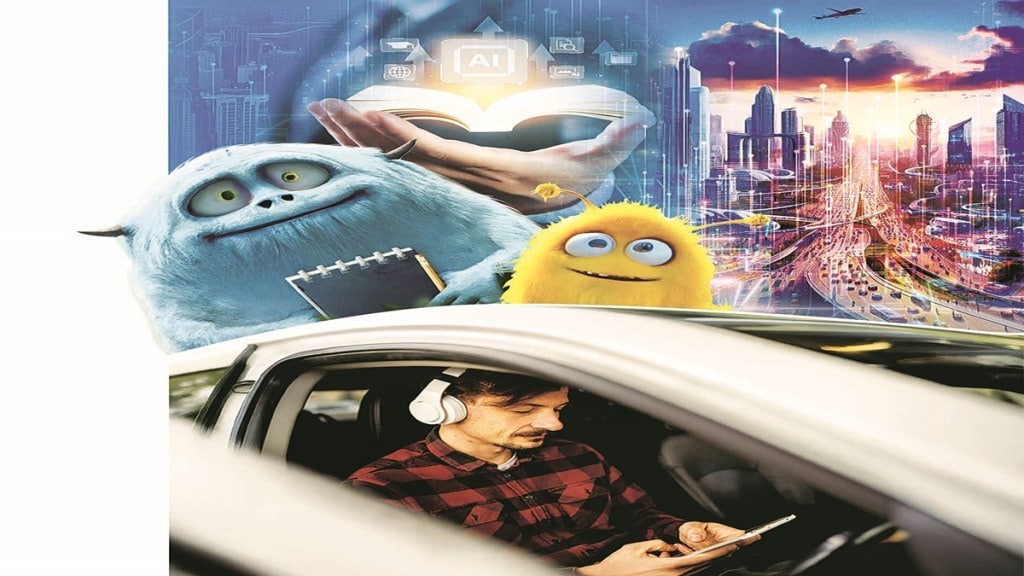AI’s Cannes debut
OpenAI is stepping into Hollywood with its first AI-driven animated feature, Critterz, which is expected to premiere at the Cannes Film Festival before a global release in 2026. According to the Wall Street Journal, the project is being developed in collaboration with London’s Vertigo Films and LA-based Native Foreign. What makes Critterz notable is that it will be produced almost entirely with OpenAI’s own generative AI technology, including GPT-5, the company’s recently launched flagship model. The budget is reportedly under $30 million, with a timeline of just nine months. OpenAI’s goal is clear: to demonstrate that AI can deliver cinematic quality at a fraction of the cost. The film’s reception at Cannes will likely set the tone for whether AI can gain a real foothold in global cinema.
Drivers to data labellers
Uber is testing a novel way to expand its role in the artificial intelligence economy by turning its Indian drivers into part-time data labellers. The company announced a pilot programme across 12 cities, giving drivers the chance to earn supplemental income by taking on small digital tasks during their downtime. These assignments include labelling images, transcribing audio, digitising receipts, and even analysing text — work that is essential for training AI models. The move could disrupt the outsourcing and data-labelling industry, which has traditionally relied on specialised firms and gig workers dedicated solely to annotation. For Uber drivers, it offers flexibility: a way to make money not only when ferrying passengers but also when waiting for rides.
Pushing for Hindi
Google and Meta are doubling down on India’s massive Hindi-speaking population to advance their AI ambitions. Google announced that its AI Mode for Search, powered by Gemini 2.5, is now available globally in Hindi. The feature allows users to ask longer, more complex, or multi-step questions, whether by text, voice, or images, and get AI-driven answers that simplify exploration and planning. After receiving positive feedback from the English rollout in India, Google hopes the Hindi version will unlock more natural, conversational access to information for millions worldwide. At the same time, Meta is working on AI-powered role-playing chatbots tailored for Indian users. As per reports, the company is hiring US-based contractors who will collaborate with local residents to fine-tune Hindi chatbots for authenticity and cultural nuance. These contractors, paid around $55 an hour, are expected to bring storytelling and character development expertise, ensuring that the AI assistants feel engaging and relatable.
India’s AI-powered city
The Karnataka government has unveiled an ambitious plan to build India’s first AI-powered township on the outskirts of Bengaluru. The Greater Bengaluru Integrated Township (GBIT) will rise in Bidadi, about 30 kilometres from the city, and is envisioned as a futuristic work-live-play ecosystem spanning nearly 9,000 acres. Deputy chief minister DK Shivakumar announced that more than 2,000 acres within the township will be allocated specifically for AI-based industries and supporting businesses, turning the development into a hub for cutting-edge technology. Designed as the state’s second central business district, the township aims to attract startups, tech giants, and R&D labs while providing integrated residential, commercial, and recreational facilities. The timeline set by the government is three years, with hopes that Bengaluru’s status as India’s ‘Silicon Valley’ will accelerate development.
AI for CBSE checking
The Central Board of Secondary Education (CBSE) is experimenting with artificial intelligence to modernise student assessment. The Board is piloting AI tools across selected schools to evaluate student submissions. These tools are being tested on tasks such as grading essays for coherence and originality, analysing spoken English for pronunciation and fluency, and providing instant feedback on projects. The objective is not to replace teachers but to complement them by reducing repetitive workloads like manual corrections. Teachers could then spend more time on instructional quality and student mentoring. If successful,
AI-enabled evaluation could become a cornerstone of education reform, streamlining assessments while maintaining human oversight to ensure fairness.
Breaking up using chatbot
Geoffrey Hinton, widely recognised as one of the ‘godfathers’ of artificial intelligence, recently shared a personal story that underscores how deeply AI is weaving into daily life. According to Hinton, his then girlfriend once ended their relationship by using a chatbot to write the breakup message. She reportedly asked AI to explain why Hinton had been ‘a rat’ and then presented him with the generated note. From drafting emails and writing speeches to mediating personal communications, chatbots are being deployed in contexts that were once deeply personal and human.
Hinton’s story serves as both a humorous cautionary tale and a snapshot of how AI tools are reshaping not just industries but also relationships and social interactions.


